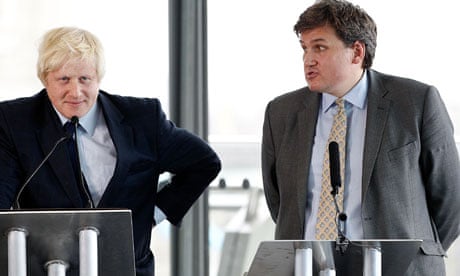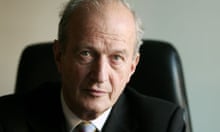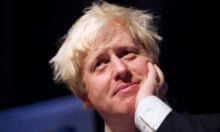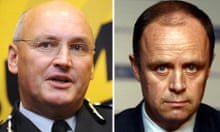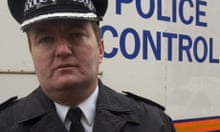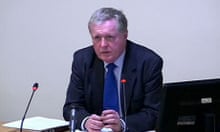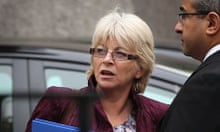London mayor Boris Johnson's deputy complained to Scotland Yard several times that it was devoting too many resources to the News of the World phone-hacking investigation, according to evidence submitted to the Leveson inquiry.
Kit Malthouse – who is now the head of the mayor's Office for Policing and Crime, which is the successor to the Metropolitan Police Authority (MPA) – expressed this view "on several occasions" after a new phone-hacking investigation, Operation Weeting, was set up in January 2011, former Met commissioner Sir Paul Stephenson said in his written statement to the inquiry.
"On several occasions after Operation Weeting had started and I had returned from sick leave, the chair of the MPA, Kit Malthouse, expressed a view that we should not be devoting this level of resources to the phone-hacking inquiry as a consequence of a largely political and media-driven 'level of hysteria'," Stephenson wrote.
Speaking about Malthouse's comments at the Leveson inquiry on Monday, he said: "The reality was that this was wrong but that was a fairly widely held view."
Stephenson, who took charge of the Met in May 2009, said it suffered from a "closed mindset" at the time and worked on the "flawed assumption" that the original investigation in 2006 was "successful".
"There was a feeling, around 2009, that the Met was more and more convinced that the original operation was a success in its totality. What we didn't do is actually go back and challenge the reasons for those decisions in 2006," he added.
"We got ourselves almost hooked on a defensive strategy that we would not expend significant resources without new or additional evidence."
Lord Justice Leveson put it to Stephenson that "the very defensive mindset" the former commissioner described "might be a very, very good example of the relationship and culture between the press and the police".
He said the natural position of the force was to "fight back" because the allegations had been made by the press.
Stephenson admitted at the Leveson inquiry on Monday morning that he had not read the Guardian article in 2009 featuring new revelations about the extent of phone hacking by the News of the World.
Stephenson told Leveson he heard about the article on Radio 4 while driving to Manchester for a police conference and considered it was just another "piece of noise" and not a priority for him.
He asked the deputy assistant commissioner, John Yates, to investigate and was happy when he reported back later the same day to say that there was nothing of substance in the article.
"It was not a priority for me as a commissioner, it remained one of the many, many pieces of noise that was being dealt with," said Stephenson.
He later admitted that he could not see what the point of the Guardian's campaign was following a meeting with the editor-in-chief, Alan Rusbridger. He was being briefed by Met officers that no new investigation was warranted. "I just did not get the difference [between what the Guardian was alleging and what Stephenson had been told by Yates]," he said.
Leveson put it to Stephenson that this was a cursory "back of the envelope" decision and that Yates could have come back to him to say more time was needed to review the situation. Leveson said it was not "a white heat moment" that required a decision that day.
Stephenson said he occasionally had meetings with Yates after this when it was apparent the phone-hacking story "wasn't going away, particularly after the New York Times article in September 2010".
This article contained fresh allegations by a former News of the World reporter, the late Sean Hoare, that Andy Coulson had been aware of phone hacking when he edited the paper. But Stephenson said he was happy with the briefing he got from Yates right up to December 2010 when he became ill.
The inquiry heard how the Met launched a new phone-hacking investigation, Operation Weeting, in January 2011 when Stephenson was on leave of absence because of his health.
He said Operation Weeting was established because the police had been given fresh information by News International. Leveson said it was "because nobody had yet gone back to see what you already had in your locker".
Stephenson denied that it was inappropriate that Yates was asked to look at the Guardian article, given his friendship with Coulson's former deputy Neil Wallis.
Last week the Leveson inquiry heard how Yates and Wallis regularly dined together and how the former newspaper executive ended up with a consultancy working with Scotland Yard's PR department.
Asked by Leveson were there no other staff available to review the Guardian article, Stephenson said Yates "would have felt that he was more than equipped to deal with it".
The inquiry also heard how Stephenson had seven meetings with Wallis – two in 2008, three in 2009 and twice in 2010.
He said he had nothing to do with the decision to hire the media consultancy set up by Wallis but admitted that it had "played very, very badly".
To contact the MediaGuardian news desk email editor@mediatheguardian.com or phone 020 3353 3857. For all other inquiries please call the main Guardian switchboard on 020 3353 2000. If you are writing a comment for publication, please mark clearly "for publication".
